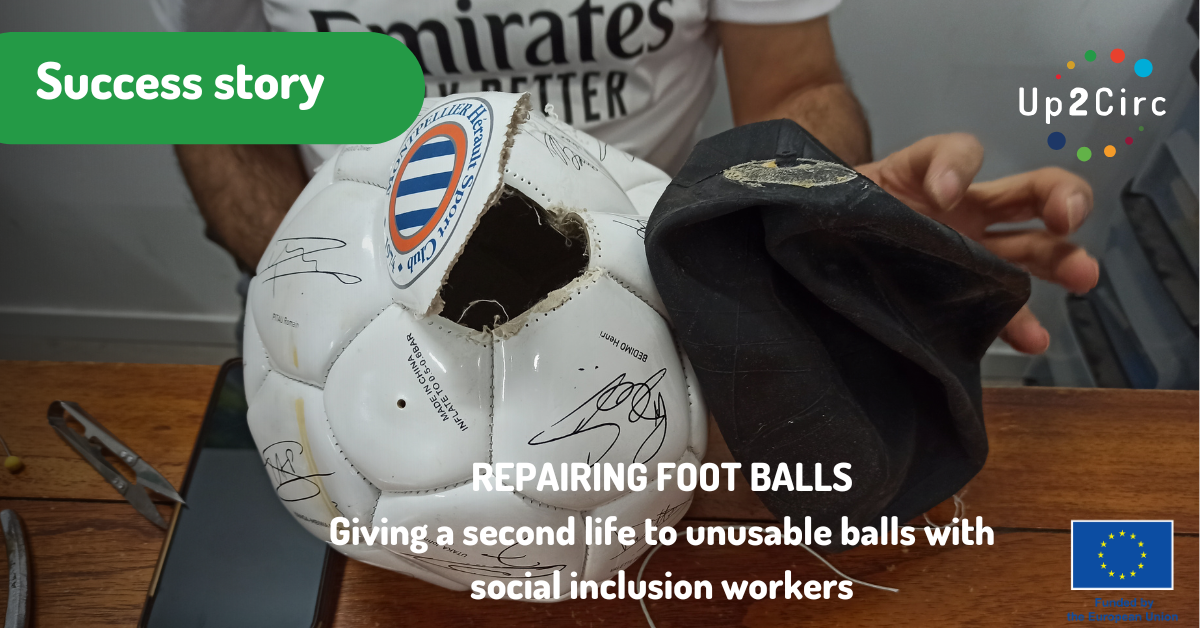Every year, up to 10 million balls are thrown away by professional or amateur clubs, schools or end consumers. Sadly, most of the balls can be repaired but none are, as there is no industry performing such activity. VISTA BALL’s idea was to create a partnership with a sport center to receive their used balls and repair as many as possible in order to extend their lifetime. In order to experiment the concept with a partner, the feasibility study allowed them to settle the technical repairing service with an employee in reintegration and test the quality of the repaired balls with professional sport players.

SECTOR
Sport
CHALLENGE
Every year, up to 10 million balls are thrown away by professional or amateur clubs, schools or end consumers. Sadly, most of the balls can be repaired but none are, as there is no industry performing such activity.
SOLUTION
VISTA BALL’s idea was to create a partnership with a sport center to receive their used balls and repair as many as possible in order to extend their lifetime. In order to experiment the concept with a partner, the feasibility study allowed them to settle the technical repairing service with an employee in reintegration and test the quality of the repaired balls with professional sport players. Repairing foot balls, just as cycles are being repaired ! Vista can repair sport balls and give them a second life, instead of dumping them or burning them! To replace a defection in a panel, to change a valve, to sew again some stitches between panels… simple but efficient!
CIRCULAR ECONOMY STRATEGIES
One of the strategies is to give everything a second life and re-use what we already used – this was the idea behind this project!
Vista also recycle some balls that they could not repair, as only 2/3rd of them are reparable. Which also have a positive impact, since most of balls are thrown away without being recycled.
IMPACT
Environmental impact
A football generates 7kg of CO2-equivalent according to the French Agency for Environment. Repairing them avoids creating a lot of waste but also contributes to lower the emissions of greenhouse gas as fewer balls are bought brand new out of fossil energies and shipped everywhere around the planet. With this initiative, the company collected 858 balls, of which 549 have been repaired, saving an estimated of 0.38 tonnes of CO2-equivalent 220 kg of primary materials.
Economic impact
Quite significant for their activity, as for their clients, instead of buying new balls for a high price, Vista can repair their old balls for less than half of the price!
Social impact
This was performed by a part-time employee working in a social-inclusion organism based in Marseille, offering a job to women far from the job market, disabled people and/or refugees and guaranteeing them a decent wage with health and social care included.
KEY TAKEAWAY
From the first study they ran initially, and after this successful try here, their study allowed them to conclude that the environmental gain of such operation is definitely positive!
Balls are either re-used or recycled, the lifespan of each ball is improved by a very significant percentage (at least doubled), the financial gain is obvious for all parts, the technical barriers are now overcome.
